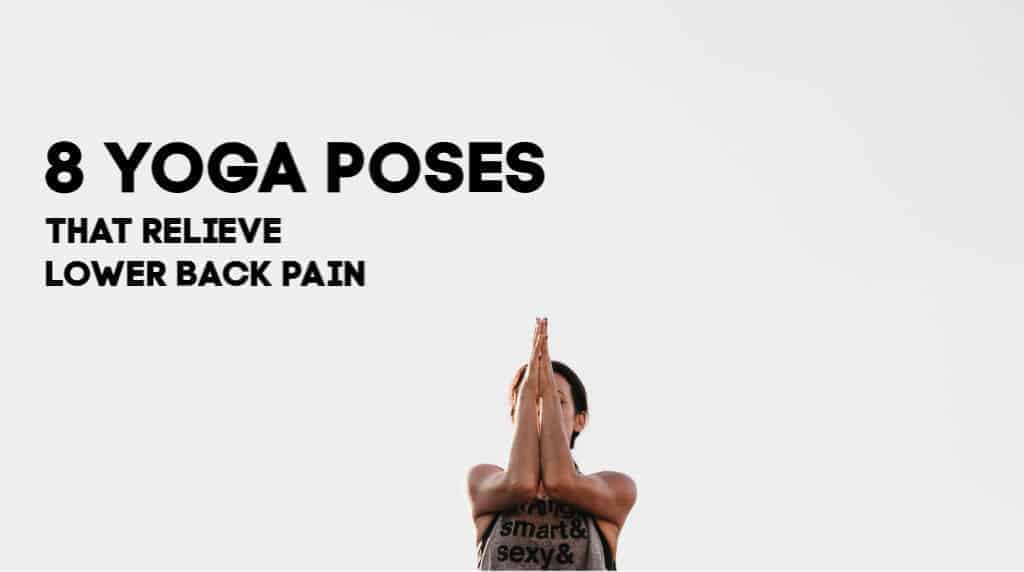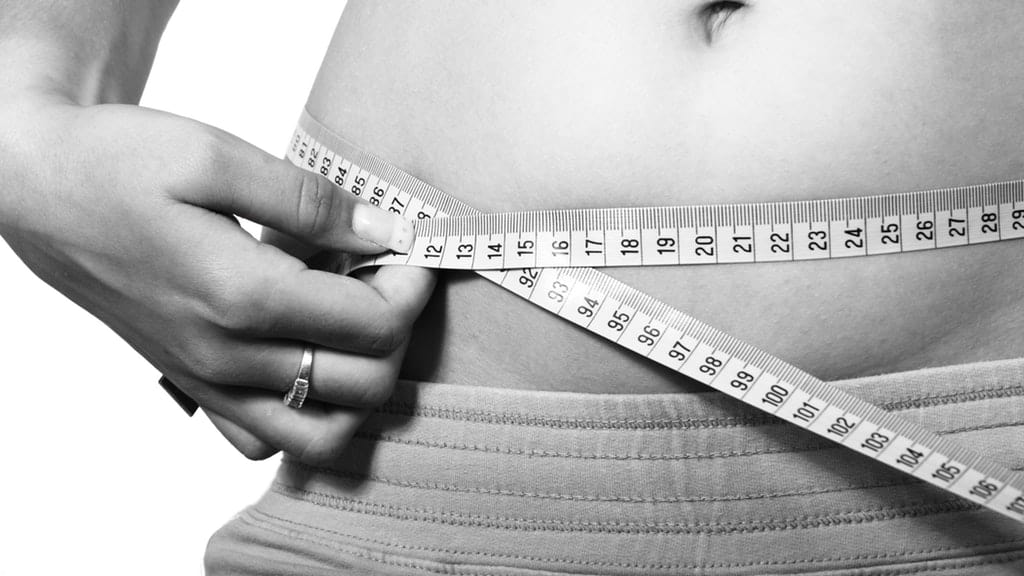Low back pain, commonly abbreviated as LBP, is the little black dress of pain. It’s ubiquitous, takes on many different forms, and looks different on each person who wears it. However, unlike that iconic dress, lower back pain is not something you want to keep for years and years.
Back pain can be caused by several things including skeletal irregularities, diseases of the spine or vertebra, traumatic injuries, or strains and sprains. Disc rupturing or degenerating are common pain-inducing mechanisms. Finding the right way to relieve lower back pain is just as complex as its causes.
Scientists and sufferers alike have been digging into the causes and treatments of this chronic condition for years, especially looking for non-medicinal, non-surgical treatments to relieve lower back pain. Yoga has emerged as a gentle, effective, long-term part of low back care. Once consider the bastion of hippies and new age practitioners, yoga is now known as a solid option for exercise and stress relief.
If you are one of the millions suffering through lower back pain, consider adding these yoga moves to your daily or weekly routine. You may reduce your lower back pain and gain a little Zen at the same time.
Two caveats to remember
- before beginning any exercise program, you should check with your doctor to see if your individual case calls for boundaries or modifications;
- if any of these poses create pain, back off, or don’t do them at all.
Cat/Cow (Marjaryasana/Bitilasana)
Begin this simple pose on all fours, with your back level and your neck in a neutral position. Make sure your hips are directly over your knees, and your shoulders are over your hands. Gently arch your back, draw in your abs, and tuck your chin to your chest. This is the cat part of the pose. Meow if it feels right.
After a few breaths, slowly release your back, allowing it to form a curve. Lift your buttocks and head at the same time. This is cow portion. If you meowed in the first part, you may want to moo here. Repeat this sequence 5 to 7 times, matching your breath to your movements.
Thread the Needle (Parsva Balasana)
Thread the Needle is a subtle stretch that can stretch your shoulders and lower back. It naturally follows Cat/Cow. From all fours, raise your right arm out to the side as high as you can. Pause, then bring it down and slip into the space under your chest and left arm. Lower your upper body and rest your face against the mat, keeping your knees tucked under your belly. Breathe and send good thoughts to your aching back. When you are ready to come out of the pose, reverse the process, ending with your right arm up in the air before bringing it back down. Repeat with the left side.
Child’s Pose (Balasana)
This iconic pose helps relieve lower back pain by stretching those troublesome areas as well as your hips, quads and your even your feet. Put your big toes together, allowing your knees to spread to each side of your mat in a V shape. Sit up straight, trying to get your buttocks on your heels, then slowly bend forwards, putting your forehead on the mat. If this is too strenuous, you can use a block or a blanket to support your head. Rest here for several breaths. You can add variations to this by changing your arm position. Your arms can either extend forward, sitting on either side of your head, or stretch a little further so you are up on your fingertips. Finally, you can also move your hands backward and rest them on your heels.
Bridge Pose (Setu Bandahasana)
You could consider the Bridge Pose to be a bridge between strength and flexibility. It stretches your hips, opens your chest, and strengthens your back, glutes, and quads. Begin by lying on your back, feet flat on the floor, knees in the air. Leave your arms straight down, palms either facing up or facing each other. Squeeze your glutes together and lift them, pulling them upward and away from the floor. Your weight should be resting on your shoulders, not your head. You can either leave your arms where they are or try to clasp your hands underneath your buttocks. Hold for a few breaths before slowly lowering your glutes back to the floor. Repeat five times.
Cobra Pose or Sphinx Pose (Bhujangasana or Salamba Bhujangasana)
This pose might help with that pain which has slithered up your back. Start by lying on the stomach with your forehead on the mat, feet flat with your legs tightly together, and your elbows bent so your hands are flat on the ground just below your shoulders. The key to protecting your back in this pose is to squeeze your glutes and your abs before you being to move.
Take a breath, and as you let it out, lift your head in this order: forehead, nose, mouth. Then use your hands to push up so your chest comes off the ground and your back gently curves into a small backbend. Hold for about 30 seconds then slowly lower.
If this is too much, you can try a Sphinx pose. Here you begin in the same prone position, except your hands are near your jaw and when you lift up, you leave your forearms on the mat. You can repeat each of these 3 to 5 times.
Downward Dog (Adho Mukha Svanasana)
Another well-known pose, the Downward Facing Dog stretches your whole spine, plus your hamstrings and calves. In addition, it helps strengthen your arms and shoulders and lets blood flow down to your head. To get into Down Dog, start on your hands and knees with them lined up under your shoulders and hips. Lift your buttocks while pushing off with your arms, unfolding your knees. Go slowly and gently so you don’t strain your back until your legs are straight and your feet are almost flat. Allow your body to settle into the pose. Hold for a few breaths and then slowly lower back down.
Two-Knee Spinal Twist (Jathara Parivartanasana)
This moving pose not only stretches your back and obliques but also offers a bit of an ab-strengthening exercise. Start by lying on your back, with your knees bent, feet flat on the mat. Breathe. Tighten your abs and lift your lefts until your legs are at a 90-degree angle. Keeping your knees together, lower them to the right, resting them on the floor. Try to keep your shoulders on the floor as well. After a few breaths, left your knees and move to the opposite side. Do this sequence a few times, slowly and deliberately.
Half Lord of Fishes Pose (Ardha Matsyendrasana)
Finally, one additional twist also helps stretch your lower back has a fantastic name of Half Lord of the Fishes. This is kind of an advanced pose if you are experiencing lower back pain, so it is important to go slow and listen to your body. Start by sitting on the mat in the Staff Pose, legs extended, back straight. Cross your right leg over your left knee. Put your right arm behind you and put your left arm around your right knee pulling it close to your body. Breathe, then beginning with your belly, twist to the right. Hold for a few breaths and then slowly untwist. Repeat on the other side.
Many yoga classes end with the corpse pose or Shavasana. Here you lie on your back, eyes closed, arms at a 45-degree angle to your body, feet relaxed. Try to focus on your breathing and let any other thoughts go. It is a delicious ending to a nice yoga session. Even if you do your stretching at home, allow this time for this one last pose so you end with full relaxation.
Of course, you are one of the 80 percent of adults who experience lower back pain, you don’t have to be told that it affects all aspects of your life. Along with physical discomfort and disability, that aching and burning disrupts your daily life, reduces your productivity both at home and work, and can lead to mental health issues like depression. It also has a tendency to make you kind of grumpy which affects those around you.
So, if you are tired of being in pain and ready to try something beyond medicines, why not look into yoga? You can usually find classes at local exercise facilities, recreational areas, or even private studios. A good yoga instructor can guide you on how to protect yourself from additional lower back pain plus show you specific poses to help relieve lower back pain.
Plus, yoga as a practice can help relieve stress, teach you to listen to your body, help you learn to focus on your breath and let you calm yourself. All these less tangible aspects are beneficial when facing any life stress such as low back pain.
In other words, add a little down dog to your day and maybe you’ll be prancing like a puppy in no time.


















